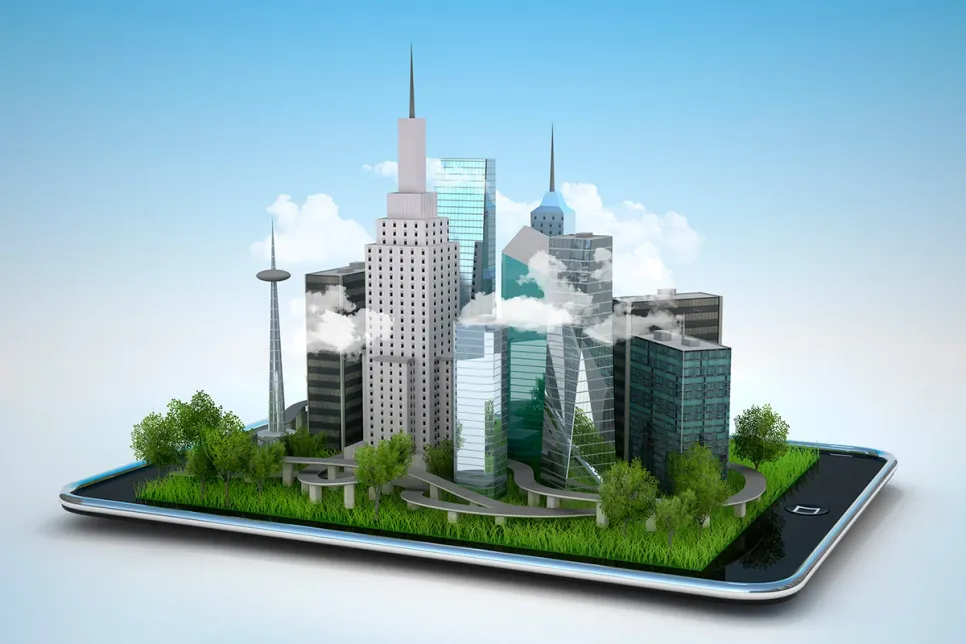Siemens Opens Its Largest Global Research Hub
Siemens has opened the first building complex of its Technology Center (STC) at Garching Research Campus, north of Munich, Germany.

The city of Singapore has been chosen as the Smart City of 2018 at the Smart City Expo World Congress to recognize the most outstanding initiatives and projects in the urban innovation and transformation industry.
The Smart Nation project to transform Singapore into a global benchmark of smart urban solutions deployment has earned the Asian city-state the title of Smart City of 2018. The wide array of solutions developed by the government from dynamic public bus routing algorithms to real-time parent-teacher portals, or even predictive analytics for water pipe leaks, have proved that Singapore systematically pursues the application of innovative digital technologies to improve people’s lives.
The Smart City Awards jury, comprised of representatives from the Barcelona City Council, the UITP International Association of Public Transport, UN-Habitat, the World Bank and Smart City Expo World Congress have considered “Singapore has undoubtedly become a global beacon of the urban transformation and how to implement smart urban solutions in a meaningful manner that not only enhances the city’s functioning but also improves the services provided to its citizens and through them their quality of life.“
“I would like to thank the Smart City Expo World Congress for presenting us with this award. Singapore’s Smart Nation efforts are about the transformation of our country, through technology. We will continue to create a better lived experience for our citizens, and these efforts must benefit our future generations as well. We look forward to working with other cities to make all our cities smart together,“ said Singaporean Senior Minister of State, Ministry of Transport & Ministry of Communications and Information, and Minister-in-charge of the Government Technology Agency, Janil Puthucheary.
In the Innovative Idea category, the winner was the {delft}LINK housing project from Cape Town (South Africa). Cape Town suffers from a severe shortage of housing for low-income earners. {delft}LINK is South Africa’s first community-funded affordable housing scheme, a non-profit company that links prospective local developers, investors and tenants via a smart phone application.
The Chinese city of Gaoqing ICT deployment program won the Digital Transformation project. By introducing innovative ICT to address challenges arising from urban-rural development, Gaoqing is building a comprehensive county-level smart city which leads to digital transformation and sustainable development, making the city a better place. This particular model is designed for a medium-sized city, that other similar cities could take as a reference for development.
The Hague’s e-Health living lab has been awarded with the Inclusive and Sharing Cities award for a project aimed developing and improving different digital health solutions based on concrete feedback from an intensive living lab of about 150 ageing citizens. The goal is to obtain scalable and actionable information for national policy, business models and tenders.
The Governance and Finance award went to Mshereib Properties, whose goal is to transform Msheireb Downtown Doha into a place where it is enjoyable to live, work, shop, visit, and spend time with family and friends. Through an integrated suite of data platforms, IoT systems & digital applications, Msheireb Downtown will empower resident experience, social interaction and quality of life with greater care for the urban environment.
The Mobilty award was for the North Avenue Smart Corridor project in Georgia (USA). This corridor is becoming the most connected one in the state of Georgia, serving as a living lab for active, multi-modal traffic management through technology deployment and data analytics. Smart technology solutions applied here are improving roadway and public safety, mobility, and the environment.
The last category, Urban Environment, rewarded Shanghai’s Jinshan District Government for being able to balance a rapidly developing industry while promoting a healthy living and working environment construction through smart buildings capable of improving the quality of life of locals in a more sustainable manner.